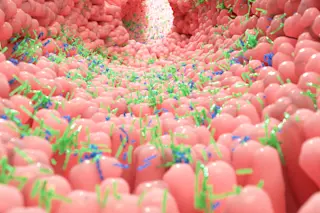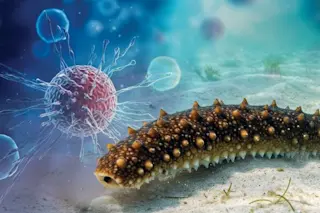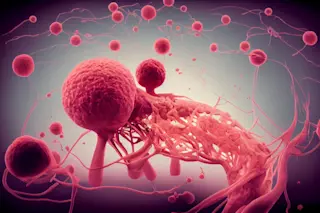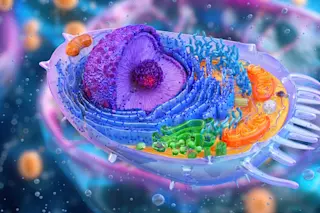Chemotherapy destroys cancer cells, but it also kills healthy cells. In addition, cancer cells left behind after treatment can develop resistance to therapy, rendering follow-up treatment ineffective. But a new type of cancer treatment that uses cellular "Trojan horses" to slip into cancer cells could remedy that. In a study published in Nature Biotechnology, Australian researchers describe a method that has successfully treated aggressive and resistant tumors in mice and dogs. The technique uses a rising technology known as RNA interference, or RNAi, which was the subject of research for the 2006 Nobel Prize in medicine recipients. This technology prevents the cell from manufacturing proteins by muting the genes responsible for their production, and relies on "mini-cells" to silence these genes. In the new study, these mini-cells were produced by bacteria and then coated with antibodies the cancer cells recognized, which allowed the mini-cells to target and slip inside of cancer cells like a Trojan horse. The researchers use a two-step attack against the cancer cells. The first wave of mini-cells releases molecules that switch off the production of proteins that make the cancer cell resistant to chemotherapy. A second wave of EDV [mini] cells is then accepted by the cancer cell and releases chemotherapy drugs, killing the cancer cell.
"The beauty is that our EDVs operate like 'Trojan Horses' They arrive at the gates of the affected cells and are always allowed in" [Reuters]
, says study coauthor Jennifer MacDiarmid. The experiment took 70 days to eliminate 100 percent of aggressive human uterine tumors that had been inserted into mice, while the mice that had been implanted with an untreated tumor died within a month. Study coauthor Himanshu Brahmbhatt says
their company, EnGeneIC of suburban Sydney, has achieved a similar outcome in dogs with advanced brain cancer. “We have been treating more than 20 dogs and have spectacular results,” Dr. Brahmbhatt said. “Pretty much every dog has responded and some are in remission.” These experiments have not yet been published [
. The next step is human clinical trials, which will begin sometime in the next few months.
Although the findings appear promising, cancer treatment experts remain cautious about whether the technology will prove successful in humans. That's because because a method that works on mice, dogs or even monkeys often doesn't provide the same treatment for humans. Cancer expert Bert Vogelstein called the method “a creative and promising line of research,” but noted the general odds against success. “Unfortunately our track record shows that far less than 1 percent of our promising approaches actually make the grade in patients,” he said
. The team that published the study is just one of dozens worldwide hoping to use RNAi therapies to treat conditions from cancer to blindness to AIDS.
Related Content: 80beats: A Novel Suggestion for Combating Cancer: Don’t Try to Cure It 80beats: Cancer Causes Depression Physically—Not Just Psychologically 80beats: Ovarian Cancer Screening Shows Progress, but Controversies Remain Image: iStockPhoto














